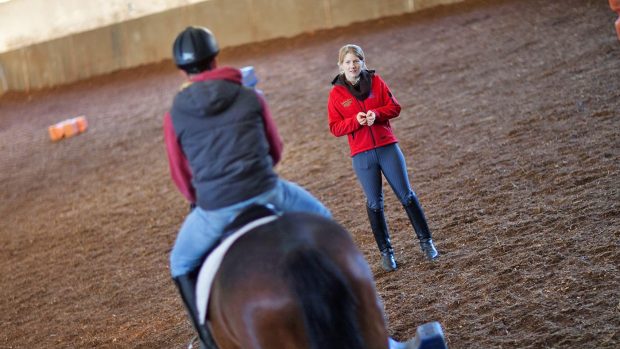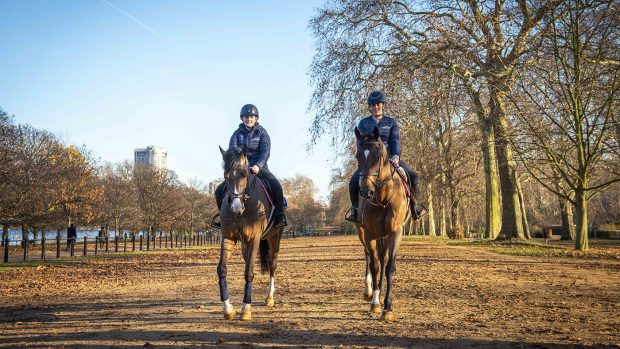Corinne Bracken, team manager of the Hong Kong showjumping and para dressage teams, revealed her top tips for safeguarding the future of equestrianism at the recent online Pony Club Coaching Conference. Here’s her advice for helping to keep riders keen…
1. Spend time at the beginning of a session talking to the rider so you have a good understanding of where you’re starting with your athletes – both human and equine.
“Ask simple key questions then work through the scales of training so you can make your assessment of both horse and rider,” says Corinne.
2. Know your audience. All horses and riders are individuals and you need to tailor your approach accordingly.
“One of my biggest learning curves was when Hong Kong asked me to manage the para dressage team. I have two athletes with cognitive learning difficulties so everything I said to them, and my body language, had to be carefully considered and executed. One rider had cerebral palsy and in his test he had to leg yield. He knew he couldn’t do it very well so he wanted to get it over quickly.
“One day we sat down with a video and thinking outside the box, I said ‘there’s no banana in leg yield.’ Banana was his favourite fruit so I knew he would remember that. The next day in the arena we put a second horse next to him to keep him straight while he rode the leg yield. I’d never used that technique before but it really worked and it was a brilliant way of making me think differently about the way my athletes work,” explains Corinne.
3. Think what you want your role to be and set boundaries. Much can be expected of a coach so don’t be afraid to ask for help.
“Too often as a coach you’re expected to have all the answers. You’re supposed to fix issues with the horse, rider or parents and parents ask you to fix issues with their children. You’re tasked with being a technical coach, a mentor, a physical fitness coach, a mental fitness coach, an equine physio, an equine vet, a saddler, a lifestyle coach, a financial advisor, a career advisor, an equine and human nutritionist and a shoulder to cry on – you can’t be all those things. Asking for help is a strength not a weakness,” says Corinne.
4. Take your status as a coach seriously.
“Coaches become role models and have the ability to mould and shape the future of athletes not just in the sporting sphere but in their whole lives. The issue is that the role model doesn’t always impact in a positive way. Without delivering a clear message which contains integrity, determination and passion it can be very destructive to the athlete,” explains Corinne.
5. Make learning fun and use praise and positive reinforcement.
“It’s easy to become obsessed with achievements but what happens when the result is not as you want? Remember horses and riders are not in control of their success in a competitive arena. All they can do is be the best they can be on that day and if that’s not good enough then so be it. No one goes into an arena or a competition to ride badly and they will always be more disappointed than you are,” Corinne adds.
Continues below…

8 things your trainer will never tell you, but you really need to know
If you want to establish the best possible relationship with your trainer, here are some useful tips to help

9 things your trainer says (and what they really mean)
Your trainer is a huge part of your team. You can rely on them to keep you and your horse

Subscribe to Horse & Hound magazine today – and enjoy unlimited website access all year round
6. Empower your athletes.
“Allow riders to learn to solve problems for themselves while keeping them and their horse or pony safe at all times. You can’t be there when hacking, at a competition or riding with friends, they have to be confident and comfortable making their own decisions,” concludes Corinne.
Horse & Hound magazine, out every Thursday, is packed with all the latest news and reports, as well as interviews, specials, nostalgia, vet and training advice. Find out more about getting the magazine delivered to your door every week.




